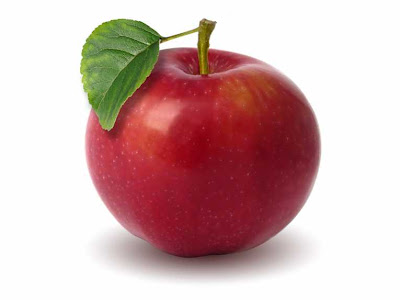Tooth sensitivity is a discomforting sensation in one or more teeth that is triggered by hot,
cold, sweet, or sour foods and drinks, or even breathing cold air. The pain
can be irritation of the tooth to sharp, sudden, and severe shooting pain that is felt deep inside the tooth.
Tooth sensitivity occur when the underlying
layer of the teeth the dentin becomes exposed as a result of several
factors such as wearing of tooth, decay of teeth, exposed tooth roots, or receding gum
tissue. The cavity inside the tooth is a vital organ which nourishes the tooth structures through numerous blood vessels and nerve endings. Dentin that envelope the pulp contain thousands of tiny tubules leading to it called dentinal tubules. There is plasma-like biological fluid
present in the dentinal tubules, the changes can trigger mechanoreceptors present on nerves
located at the pulpal aspect of the tooth thereby eliciting a pain response. The flow of the biological fluid inside the dentinal tubules allow the
stimuli such as the hot, cold, or sweet food to reach the nerve endings in
the tooth which results in pain. This
hydrodynamic flow can be increased by cold, air pressure, drying, sugar, sour,
or forces acting onto the tooth. Hot or cold food or
drinks, and physical pressure are usual triggering factors for teeth sensitivity.
There are many factors which leads to the development of
tooth sensitivity and these are
1. Teeth grinding: The grinding or clenching of the tooth may
wear down the enamel and expose the underlying dentin.
2. Hard brushing: Brushing too hard or
using a hard-bristled toothbrush in the long run can wear down the enamel and cause dentin to
be exposed.
3. Tooth caries: The plaque build-up around the tooth and the resultant bacterial acid production on the root
surfaces can corrode the enamel which results in exposure of dentin causing sensitivity.
4. Gum recession: The recession of the gums occurs when the gums move away from the surface of the tooth
due to hard brushing or bad brushing techniques or conditions such as gum disease, periodontal disease etc. make the root surface exposed.
5. Gum disease: Inflamed and sore gum tissue
caused by gingivitis or gum disease may cause sensitivity due to the loss of supporting ligaments, which exposes
the root surface.
6. Cracked teeth: Chipped or broken tooth may cause irritation to the dentinal tubules while passage of fluid and bacteria from plaque into the pulp causes inflammation.
7. Age: Normal tooth wear causes abrading away of enamel and opening up dentinal surface exposing dentinal tubules resulting in sensitivity.
8. Acidic foods: Regular consumption of foods with high
acid content such as citrus fruits, tomatoes, pickles and tea can cause
enamel erosion.
9. Tooth whitening products: Tooth whitening products and toothpaste with
baking soda and peroxide contain products which bleaches away the enamel that contributes to teeth sensitivity.
10. Mouthwash use: Long-term use of some
over-the-counter mouthwashes that contain acids may worsen
tooth sensitivity if you have exposed dentin.
11. Routine dental procedures: Sensitivity can occur
following teeth cleaning, root planing, crown placement, and tooth restoration.
Steps to Prevent Sensitivity
1. Avoid teeth grinding. Avoid frequent teeth clenching. If you grind or clench your
teeth at night, use a mouth guard.
2. Use a soft bristled toothbrush. A soft bristled brush will
result in less toothbrush abrasion to the tooth surface and less irritation to the gums. Brush gently and carefully around the gum line so as not to injure and remove
the gum tissue.
3. Promote good oral hygiene: Good oral hygiene measures such as washing mouth thoroughly after every meal, brushing the teeth daily, flossing of teeth, avoiding sweets and excess carbohydrates, etc will prevent earlier tooth caries and preventing tooth sensitivity. Follow proper brushing and flossing techniques
to thoroughly clean all parts of your teeth and mouth.
4. Use desensitizing toothpaste. There are
several brands of toothpaste available for sensitive teeth. Use the toothpaste that reduces the sensitivity the most. Use a fluoridated toothpaste, the fluoride in the tooth paste plugs the dentinal tubules reducing the sensitivity.
5. Reduce consumption of acidic foods. Frequent consumption of
highly acid foods can gradually dissolve tooth enamel and lead to dentin
exposure. They may also aggravate the sensitivity and start the pain reaction.
6. Use fluoridated dental products. Regular use of fluoridated toothpaste and mouth rinse can decrease tooth sensitivity.
8. Avoid over-the-counter mouth washes. Avoid using over-the-counter mouth washes and instead use warm saline gargle, which is a warm solution of salt water.
7. Early consultation: Make an early consultation with your dentist as early as possible when there is a fracture of tooth, caries exposed tooth, root exposed tooth, gingival recession etc.





